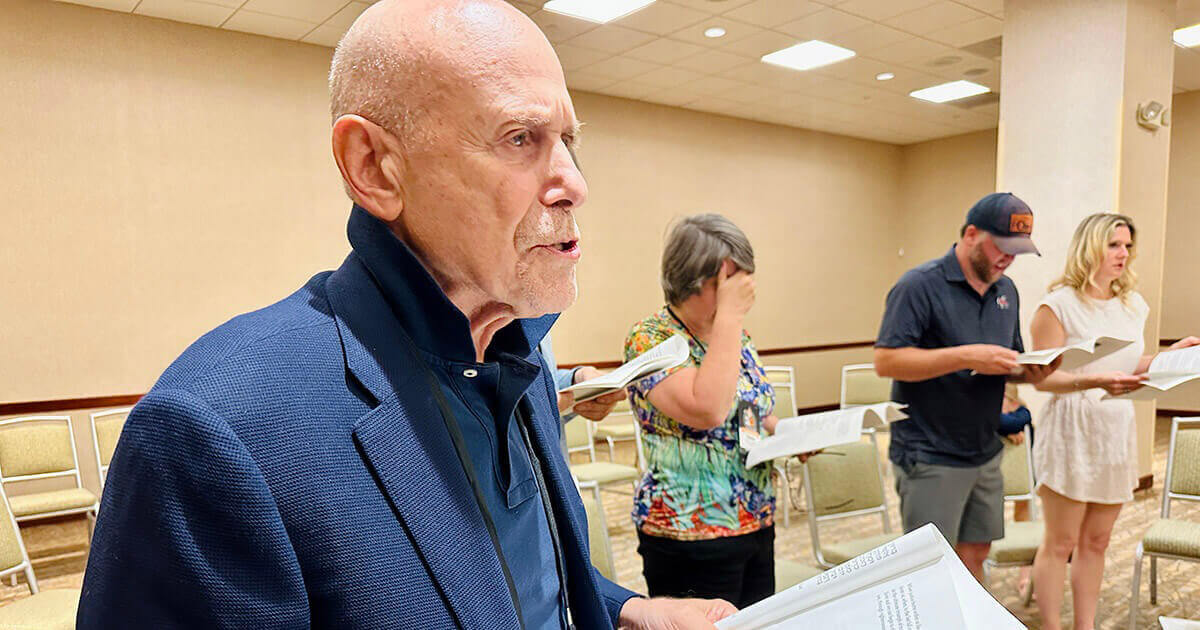Tied Down in Iraq, Washington Lacks Panacea for ‘Map’
WASHINGTON — Faced with escalating Israeli-Palestinian violence and increased attention on its postwar handling of Iraq, the Bush administration appeared paralyzed this week and incapable of rescuing its peacemaking initiative.
Administration officials are now focusing on simply stopping the downward spiral of violence and returning to the relative calm that preceded the August 19 bus bombing in Jerusalem, according to Israeli and Arab diplomats in Washington. But diplomats and pro-Israel activists say that President Bush’s Middle East team seems unable or unwilling to leverage American diplomacy to achieve even that limited goal.
“They are saying, ‘Palestinians must do this, Israelis must do that,’ but they are really not doing much to weigh in,” said a pro-Israel activist in Washington.
Under fire on Capitol Hill for having badly underestimated the cost and difficulty of rebuilding Iraq, the administration seems determined to focus its attention on fixing what is wrong with the occupation there, rather than risking a public failure in the Israeli-Palestinian quagmire. Tuesday’s twin suicide bombings, which killed at least 15 Israelis, seem to have thrown the administration’s policy on Israeli-Palestinian peace deeper into disarray.
“They don’t really know what to do,” said an Israeli diplomat in Washington. “Clearly, they have no presumption of taking big or dramatic steps to transform the situation.”
According to diplomatic sources, this lowering of expectations means a shift in the handling of Israeli-Palestinian relations, based on the more modest goal of managing the crisis rather than resolving it. These sources expect no imminent high-profile missions to the Middle East, no ultimatums directed to either side and no new, bold ideas to break the renewed cycle of killings and retaliatory strikes.
Bush’s press secretary, Scott McClellan, said Wednesday that the administration expected the new government of Palestinian Prime Minister-designate Ahmed Qurei to state “clearly” its opposition to terrorism. In addition, McClellan said, the new government would have to “insist that terrorist and military organizations not under the control of the Palestinian Authority be outlawed and dismantled.”
Top American foreign-policy aides are not publicly criticizing Israel for its attacks against Palestinian terrorist leaders. American officials have, however, reiterated their view that Israel should not expel Palestinian President Yasser Arafat, fearing that such a step would trigger further chaos in the region.
The issue is likely to come up next week during Israeli Defense Minister Shaul Mofaz’s visit to Washington. He is expected to lobby the administration and Congress for approval to expel Arafat.
Some pro-Israel lobbyists have already started to explore the possibility that the White House will change its position on expelling Arafat and to probe the mood in Congress on the issue. There is some talk among Jewish groups about getting more aggressive in pushing the administration to demand more from the Palestinian leadership as a condition for Israeli concessions.
“But people are still waiting to see what the administration will do,” said one pro-Israel lobbyist.
Another pro-Israel lobbyist predicted that “peace efforts will be stuck for weeks, if not months, and that’s being optimistic.”
The issue was notably absent from Bush’s nationally televised address September 7 on Iraq. The omission was a strong indication of how the Palestinian-Israeli agenda has been superseded by the administration’s goals in Iraq, said Shibley Telhami, senior fellow at the Brookings Institution and author of a new book on American policy in the Middle East.
Former administration Middle East policy-makers and experts on the region seem united in the assessment that the White House, while maintaining a posture of pushing for peace, will effectively restrain its involvement in the crisis.
“I’m afraid that it’s back to business as usual,” said Martin Indyk, chief architect of Middle East policy in the Clinton administration. Speaking at the Brookings Institution in Washington, where he heads the Saban Center for Middle East Policy, Indyk cautioned against “President Bush walking away from the process, understandably focused on Iraq.”
“It’s hard to fathom exactly what we have been doing over the last couple of months,” Indyk said.
He said that he didn’t see the president taking the action needed to salvage the floundering peace process. In the absence of a strong Palestinian leadership and with the region sliding “back into the abyss of violence and terrorism,” Indyk said, the administration’s next move might be to focus on implementing a long-term policy of assisting the emergence of pragmatic and effective Palestinian leaders.
Others echoed the view that the administration appeared to be backing away from the process, including Henry Siegman, director of the U.S./Middle East Project at the New York-based Council on Foreign Relations. “There is no doubt that the administration has distanced itself from the road map process, at least from the intensity that it assumed upon launching it,” said Siegman, the former head of the American Jewish Congress.
Siegman said that he does not think that the administration’s approach will change in the foreseeable future. The forthcoming election season — and the fear of angering Jewish voters and donors — is making it less likely that Bush will put pressure on Israeli Prime Minister Ariel Sharon to take necessary steps for peace, Siegman said.
Some observers, however, say that the complications in Iraq may actually serve as an incentive for the administration to intensify its Israeli-Palestinian peacemaking efforts, as it seeks international involvement in running the occupation in Iraq. Still, most observers agree that such considerations would not generate enough motivation for Bush “to play the role that he would minimally have to play to alter the dynamics in the Israeli-Palestinian situation,” Siegman said.
What the Bush administration is most likely to do now, Siegman said, is not “more of the same,” but rather “less of the same.”
“I am not aware of any long-term strategy here, other than not conceding publicly the collapse of the road map and expressing the hope that certain senses will allow the process to continue,” Siegman said.
A message from our editor-in-chief Jodi Rudoren

We're building on 127 years of independent journalism to help you develop deeper connections to what it means to be Jewish today.
With so much at stake for the Jewish people right now — war, rising antisemitism, a high-stakes U.S. presidential election — American Jews depend on the Forward's perspective, integrity and courage.
— Jodi Rudoren, Editor-in-Chief






















